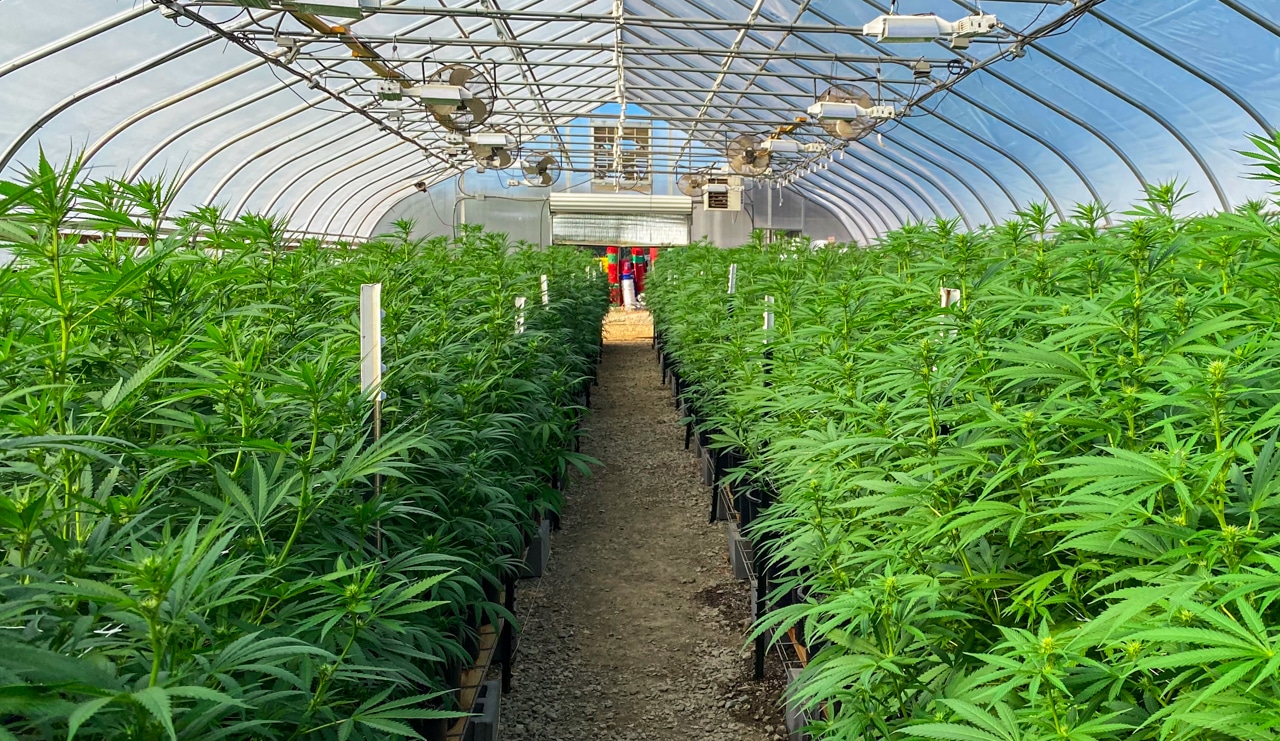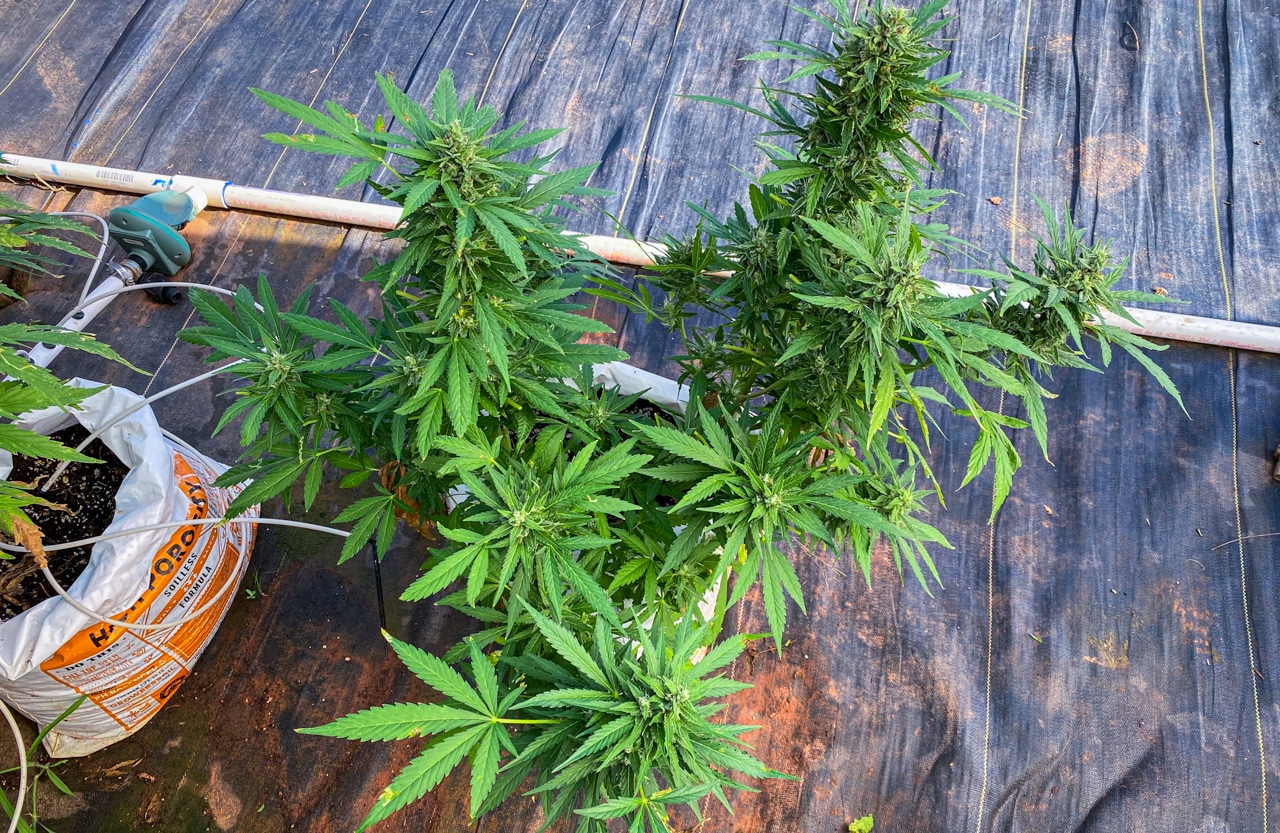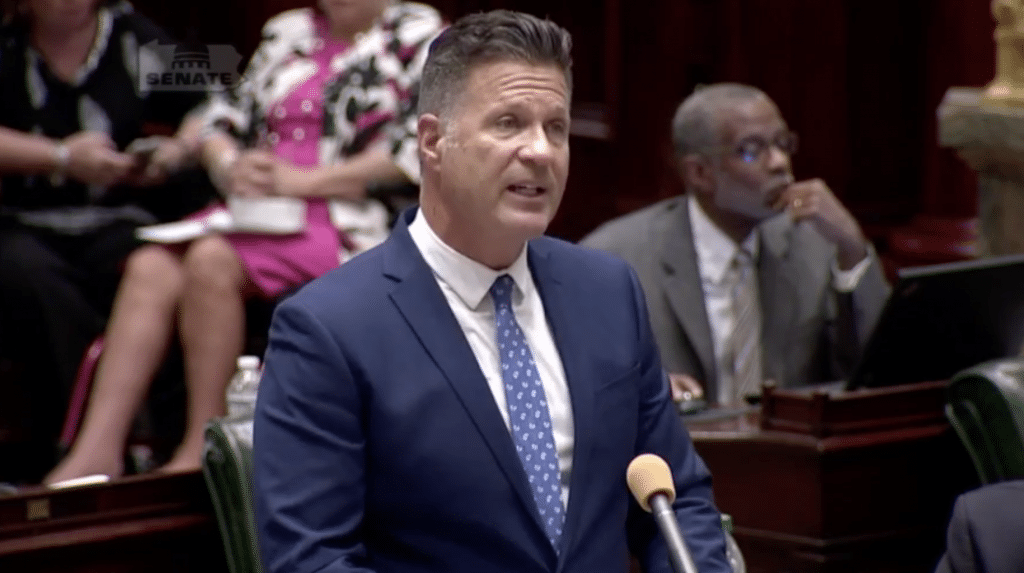
by Travis C | Oct 6, 2021 | Blog, Cannabis Law, Cannabis Law and Compliance, Cannabis News, Legalization, Politics
With renewed efforts in the Pennsylvania cannabis legalization fight, the movement has gained an unlikely ally; a former U.S. marshal who spent years fighting the drug war.
Republican Senator Mike Regan is working on new legislation to legalize Pennsylvania cannabis. The legislation would legalize cannabis for recreational use and permit adults age 21 and older to legally purchase and possess a “personal amount” of cannabis. Regan thinks that amount will most likely be an ounce.
“I think it’s inevitable,” Regan said. “It’s common sense to think we’re going to do it at some time and it should be done smart.”
While still a work in progress, Regan sent a memo to his fellow lawmakers stating, “As chairman of the Senate Law and Justice Committee and a former member of law enforcement, rather than sit idly by and allow others to shape the legislation, I am stepping up to be a leader on the issue, as I did on medical marijuana.”
This is a much different approach compared to other Republicans in the state who are fighting legalization. Instead of joining the resistance against Pennsylvania cannabis legalization, Regan is attempting to take charge so Republicans can truly have a say in what happens.
Pennsylvania Governor Tom Wolf has expressed his support for broad cannabis legalization on numerous occasions. Along with Lieutenant Governor John Fetterman, a staunch advocate for cannabis legalization, the two believe creating a legal cannabis marketplace can generate more money for the state to address social justice issues, mainly the convictions and criminal records people get for consuming or possessing cannabis.
Regan used the examples of New York and New Jersey, two neighboring states that have legalized cannabis for recreational use as reasoning for legalizing Pennsylvania cannabis. “We will soon experience border bleed with Pennsylvanians contributing to the tax base of those states and helping to pay for their roads and bridges, while the commonwealth deals with the implications of purchases brought across state lines without the revenue or resources in our legal system to address them,” Regan said in his memo.
However Regan isn’t the first Republican in Pennsylvania to push forward recreational cannabis legislation. Senator Dan Laughlin (R) joined Democrat legislators in pushing for cannabis legalization in February of 2021.
Additionally, two Democrat House Representatives, Jake Wheatley and Dan Frankel, introduced a bill to legalize Pennsylvania cannabis just last week. However the remaining Republicans in the legislature continue to express their disapproval of broad cannabis legalization in the Keystone State.
Many Republicans have said that the state should continue to focus on medical cannabis only, and that recreational cannabis legalization is not a priority for them. Their reasoning is that medical cannabis has yet to prove successful enough to warrant full blown legalization. However, medical marijuana sales in Pennsylvania topped more than $900 million over one year during the COVID-19 pandemic, and could soon see $3 billion in total sales with just a few operating years under its belt.
Pennsylvania is outpacing other medical marijuana states by huge margins, showing that interest in Pennsylvania is at an all time high. Regan estimates that recreational cannabis could generate an additional $1 billion a year in revenue. That revenue could be used to support law enforcement, fight gun violence, provide after school programs for disadvantaged youth and free up motor license funds that are currently being used to fund state police to help fund road and bridge improvements instead.
The bill would establish a regulatory control board, remove penalties for possession and use by adults, allow the legal purchase of firearms regardless of cannabis use, among many other features.
As an ex-law enforcement officer, Regan is running against the grain in his efforts that helped shape the medical marijuana legislation in the state, as well as his new support for recreational cannabis.
“As a former United States marshal, I had the opportunity to work in federal law enforcement at the height of the drug war, so I know the seriousness of drug use,” he said in his memo. ”But I am also cognizant that there has been a significant decline in arrests and prosecutions for personal use amounts of marijuana in recent years. Our law enforcement agencies and justice system do not have the manpower or time to handle these minor marijuana offenses that clog our courts and produce little return.”
Instead, Regan wants law enforcement to focus more on the large scale drug importers that deal heroin and fentanyl, which fuel the massive opioid crisis that has been impacting Pennsylvania for years, killing thousands of Pennsylvanians.
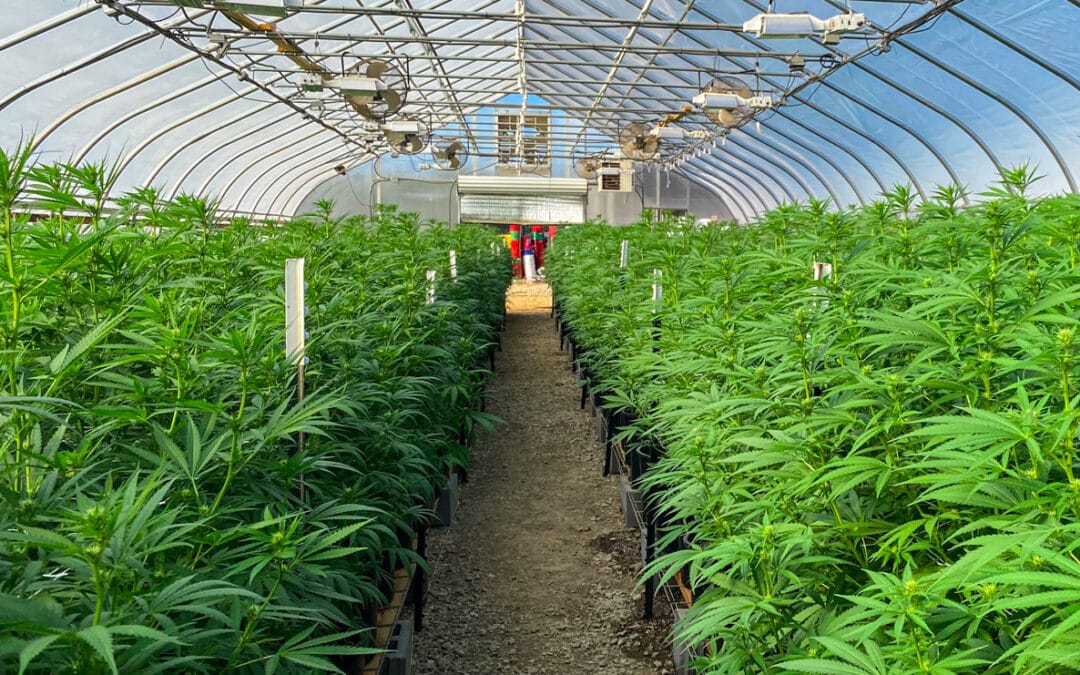
by Travis C | Oct 4, 2021 | Blog, Cannabis Law, Cannabis Law and Compliance, Cannabis News, Legalization, Politics
Virginia legalized the home
cultivation of cannabis July 1, 2021, with plans for a retail industry set in place for 2024. However with the 2022 gubernatorial race quickly approaching, that could all be overturned.
The retail market set to begin in 2024 still needs to be organized and approved down the road by legislators. This means that there’s still plenty of time for those that
oppose legalization to try and overturn it. Should the Republican candidate win the race, it might be easy to do.
NORML, a national organization that has been fighting for cannabis legalization for decades, uses a rating system in gubernatorial races across the country to grade the candidates for their likelihood to support cannabis legalization.
NORML has given the race’s Democratic candidate, former Gov. Terry McAuliffe, an A grade, noting his public statements calling for legalization. The Republican candidate, Glenn Youngkin, a private equity executive, has a D grade from NORML, noting that Youngkin supports only limited cannabis decriminalization.
And it isn’t just the governor’s seat that is up for grabs in 2022. The Virginia House of Delegates is nearly split down the middle on partisan lines, with multiple seats up for re-election in 2022. Advocates are concerned that without a Democrat majority in both chambers of government in the state, the path to full legalization may be blocked indefinitely.
Similarly to the gubernatorial race, the race for Virginia Attorney General is just as important. The Democratic candidate for attorney general, incumbent Mark Herring, has called for cannabis legalization in the commonwealth, while GOP challenger Jason Miyares has only expressed limited support for medical marijuana.
Additionally the lieutenant governor race falls into the same judgement from NORML, with the democrat receiving and A grade and the Republican getting a D grade. Long story short, if Democrats lose these races, the future of cannabis legalization in Virginia is hazy to say the least.
Over 60% of Virginians have expressed their support for cannabis legalization, with just over 30% being opposed. One would like to think that no matter who wins these races, the voice of the people will be respected. If the majority supported legalization enough to pass it, then it is the will of the people of Virginia that cannabis should remain legal.
While traditionally the party of smaller government, less intervention and following the will of the people, one should be very hesitant to believe that a republican governor and republican controlled House of Delegates would not try to impede legalization in Virginia. Suffice to say, Virginians will be waiting with bated breath to see who comes out on top, as it would seem the future of cannabis legalization literally depends on it.
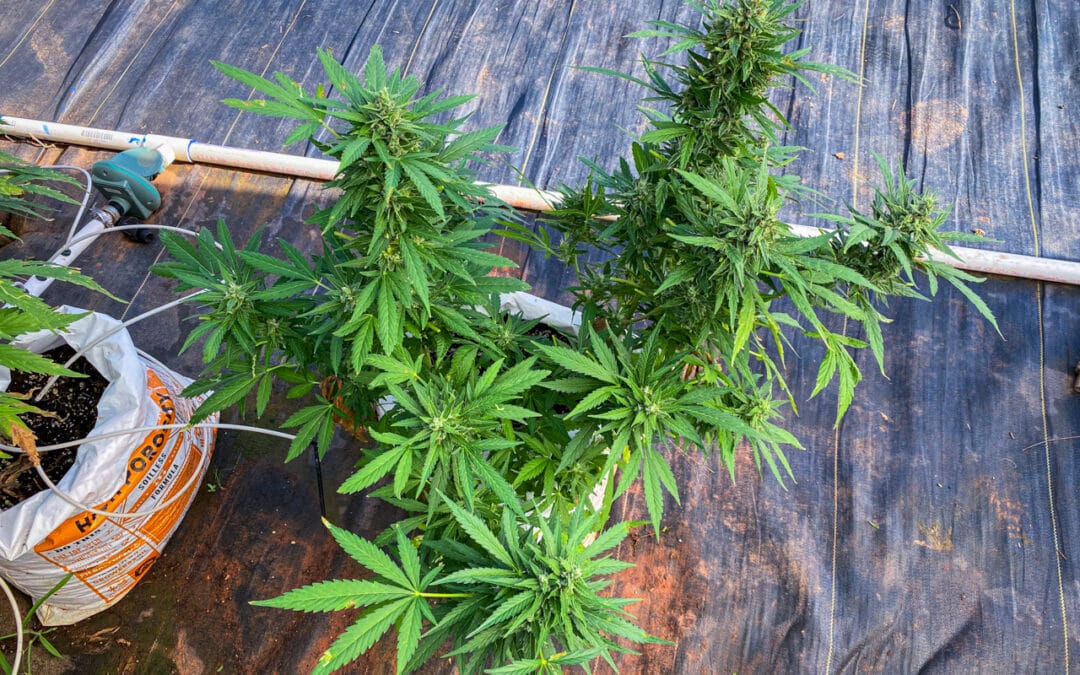
by The Real Dirt | Oct 1, 2021 | Blog, Cannabis Law, Cannabis Law and Compliance, Cannabis News, Growing, Medical Marijuana
Six months after New York passed its landmark bill legalizing marijuana for adult use and creating a regulatory framework for the cannabis industry overall, the state is violating the law’s deadline for home cannabis cultivation rules.
The Marijuana Regulation and Taxation Act allows limited home cultivation of medical cannabis. But it also specifies that patients will not enjoy that right until after the Office of Cannabis Management issues regulations governing it, which it was obligated to do “no later than six months after the effective date” of the law. But after a series of delays, staffing of that office is still underway.
That means lawmakers’ intention for the law to allow medical marijuana card holders to begin growing plants this week is on hold indefinitely.
The delay is the latest in a series of stumbles in the medical cannabis program, and they are occurring in spite of the explicit intent of legislators who drafted and championed the new law.
In the months following the law’s passage, patients and doctors also complained that key updates to the program which legislators insisted were meant to apply right away had yet to take effect, including increasing patients’ supply limits to 60 days, permitting physicians to have discretion on the reasons they certify for patients’ cannabis use, and allowing the sale of whole flower.
Dr. Mark Oldendorf, who runs a general practice in Albany and has developed significant expertise on the medical applications of cannabis, is frustrated that he has patients who should have been eligible months ago for medical cannabis certification but have yet to receive the treatment in New York.
“I’ve had quite a few people who I’ve turned away because they wanted it specifically for insomnia, that’s the big need, and it’s not a qualifying condition” at the moment, he said. “So all of those people are headed off to Massachusetts to buy something.”
Oldendorf said this delay has pushed some doctors to search for additional relevant ailments that might tick a box on the state’s outdated online form, in order to get around the restrictive list of conditions a provider must select from.

by Travis C | Sep 28, 2021 | Blog, Business, Cannabis Business, Cannabis Law, Cannabis Law and Compliance, Cannabis News, Industry News, Legalization, Politics

Nearly a year after passing a constitutional amendment to legalize cannabis, New Jersey has yet to open a single retail cannabis store. While the industry has yet to take off, that isn’t stopping regulators from preemptively banning one of the most popular cannabis products.
When it comes to the cannabis products that consumers want, flower remains king. Vaporizer pens and concentrates for dabbing have been slowly catching up with flower as consumers seek a quicker way to get the desired effects of cannabis without burning the plant itself.
However, cannabis edibles have also been gaining popularity. Avoiding the need for any sort of inhalation at all, edibles are great for consumers who don’t want to vape or smoke, but still want the effects of cannabis.
Cannabis beverages have seen the greatest growth since the beginning of 2020, when cannabis sales skyrocketed across the country due to the COVID-19 pandemic. Cannabis capsule products have also grown noticeably in popularity, showing that consumers are seeking a way to consume cannabis without, well, consuming traditional cannabis.
With such growth in the edible cannabis market, it would seem obvious to any potential industry that is about to open that edibles will be a high-demand product. Higher demand means higher profits, which is what any state is seeking when legalizing cannabis.
Unless you’re New Jersey.
Ban on almost all cannabis edibles
Despite having no functional legal cannabis industry to base their decision, regulators in charge of New Jersey’s recreational cannabis have decided to ban all forms of edible cannabis products except for lozenges. This means traditional products consumers would likely be familiar with — cookies, brownies, gummies, beverages — are all prohibited.
The reasoning behind the ban is the same used by many states when they first legalize; the children. Concern over edible products that might appeal to children is a consistent issue in the legal cannabis industry.
While other states passed new regulations requiring child-proof packaging and prohibiting edibles from being designed in a manner that would be appealing to kids (i.e. gummy bears, star-shaped cookies, etc.), New Jersey has decided to take a much more restrictive approach.
According to the new set of regulations passed by New Jersey cannabis regulators, “ingestible forms of cannabis… shall only include syrups, pills, tablets, capsules, and chewable forms.”
A growing and thriving grey market
Just because regulators are dragging their feet in getting a functional legal cannabis industry up and running doesn’t mean that the people aren’t already taking advantage of the new law. Seemingly taking a tip from the Washington D.C. playbook, New Jersey has begun to develop a thriving grey market industry.
While there is nowhere to legally buy or sell cannabis directly, there’s a workaround. Similar to how D.C.’s grey market operates, New Jersey currently has a gift/donation system in place to skirt the current regulations.
In this grey market, a consumer may find a delivery service online. One the website one might see several different cannabis products, or “packages” as they might be called. However that isn’t technically what the consumer is buying.
Instead, the cannabis product is simply a “gift” that is included with the purchase of another item on the website. This might be a sweatshirt, a t-shirt, or even something as small as a sticker. The price of the sticker may be around $40, which conveniently is the same price as an eighth of cannabis.
Within a couple hours, a delivery driver will be at the door with the sticker and the included gift, and bam you just “bought” legal cannabis in New Jersey. But just like D.C.’s grey market, the grey market in New Jersey is completely unregulated.
Although a legal cannabis company has to follow strict regulations on manufacturing and packaging, an unregulated market like that which is blooming in New Jersey has no such restrictions. So while regulators may think they are making progress by banning various forms of edible cannabis products, these new rules will be all but ignored by those operating in the grey market already.
In other words, the new regulations can’t possibly have any sort of impact until there is an actual legal industry to enforce them. As regulators take their time getting the legal cannabis industry up and operational in New Jersey, the grey market will continue to thrive only making it more complicated to get legitimate businesses licensed and running.
If you are interested in learning more about the New Jersey cannabis industry, need assistance with licensing, planning and implementation of your business plan, Greener Consulting Group can help you stay on top of the latest regulatory changes, fees and best practices for getting ahead of the competition when the industry takes off.

by The Real Dirt | Sep 24, 2021 | 420 Culture & Travel, 420 News, Blog, Cannabis News, Culture, Industry News, Legalization
Cannabis is coming to the California State Fair.
For the first time, the fair in 2022 will host a competition — open to all licensed cannabis cultivators in the state — to judge the finest flower in California.
Entrants will be divided into three divisions: indoor, mixed light and outdoor. Judges will evaluate the cannabis flower, with seven individual cannabis plant compounds being tested and identified for awards. That includes two cannabinoids — CBD and THC— and five terpenes, which are naturally occurring aromatic compounds that give the plant its characteristic smell and which are a source of plant essential oils and resins.
The California State Fair will hand out 77 bronze, silver, gold and double gold medals to the winners, as well as seven Golden Bear trophies for the “Best of California” in each category.
“We are pleased to celebrate California’s legal and licensed cannabis industry as part of the California State Fair in 2022,” said Jess Durfee, chairman of the California Exposition and State Fair Board of Directors, in a statement. “For the past 166 years, the California State Fair has always been a first mover, leading the state fair circuit with innovative programming and large-scale competitions that celebrate the best the state has to offer, making the addition of cannabis cultivation a natural new category.”

by The Real Dirt | Sep 23, 2021 | 420 News, Blog, Business, Cannabis Business, Cannabis Law, Cannabis Law and Compliance, Cannabis News, Industry News, Legalization, Politics
The U.S. House of Representatives late Tuesday night approved a bill that would let banks to do business with cannabis companies without fear of penalty, giving traction to the least-disputed reform sought by the growing industry.
The so-called SAFE Banking Act would be a boon for marijuana companies, which have so-far been stymied by the necessity to deal in cash because of federal restrictions. That has meant they have extra security costs and logistical problems, even as marijuana increasingly becomes legal. Some three dozen states now allow medical or recreational use, according to New Frontier Data, a cannabis research firm.
The measure, which has been passed by the House before with bipartisan support, was this time approved by voice vote as part of the National Defense Authorization Act.
Representative Ed Perlmutter, a Colorado Democrat, who had re-introduced the bill, has said that allowing cannabis businesses to access the banking system would bring more money into the economy and offer the opportunity to create good-paying jobs. The American cannabis industry had $20.3 billion in legal sales in 2020, according New Frontier Data.
The bill’s prospects are unclear in the Senate.
Yet it’s still a far cry from the wish-list of legal reforms that the industry seeks, including all-out legalization, and relief from tax burdens.
The U.S. Cannabis Council, a trade group that represents companies in the industry, called the current rules that require marijuana firms to be all-cash a security hazard.
“Over $17 billion in legal cannabis was sold in the United States last year, overwhelmingly through cash transactions. Forcing legitimate, well-regulated cannabis businesses to conduct most of their business in cash is anachronistic and a clear threat to public safety,” the council’s chief executive Steven Hawkins said in a statement before the bill passed.
BTIG analyst Camilo Lyon said in a research note this week that the SAFE Act’s inclusion with the defense authorization might enhance its prospects.
“Discussions with our D.C. contacts suggest it has an easier pathway of getting through the Senate, largely because no senator wants to be viewed as holding up the massive 1,700 page must-pass NDAA simply because of SAFE banking,” Lyon wrote.




